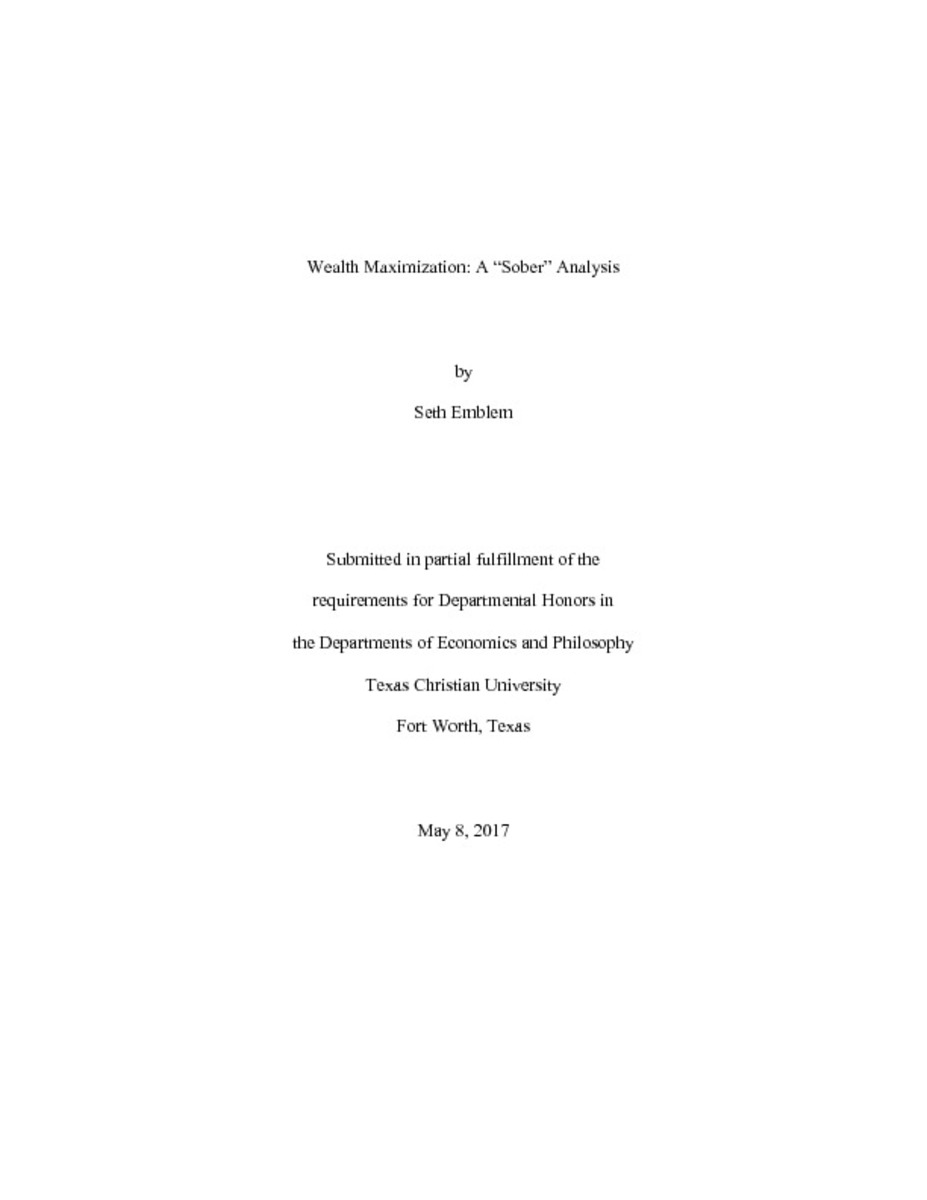Wealth Maximization: A "Sober" AnalysisShow full item record
| Title | Wealth Maximization: A "Sober" Analysis |
|---|---|
| Author | Emblem, Seth |
| Date | 2017 |
| Abstract | In this paper, I first consider the ethical implications of "Wealth Maximization", an ethical theory that permeates "stereotypical" economic analysis, by analyzing Richard Posner's conception from his 1985 work, Wealth Maximization Revisited. Ultimately, among other theoretical and pragmatic concerns, I think Wealth Maximization fails to achieve its goal of maximizing wealth, at least compared to theories such as "autonomy maximization". Second, I consider a potential objection against my normative analysis, an objection I coin as the "ought-implies-can" objection. This objection basically claims that if psychological egoism (PE) is true, then all normative judgments are inappropriate. Ultimately, in utilizing Elliott Sober's transitivity result and empirical studies concerning volunteerism and happiness, I think we have good epistemic reason to reject PE in favor of what I call "psychological utilitarianism" (PU), and thus we have good reason to see my normative analysis as an appropriate endeavor. |
| Link | https://repository.tcu.edu/handle/116099117/19867 |
| Department | Economics Philosophy |
| Advisor | Galvin, Richard |
| Additional Date(s) | 2017-05-19 |
Files in this item
This item appears in the following Collection(s)
- Undergraduate Honors Papers [1463]
© TCU Library 2015 | Contact Special Collections |
HTML Sitemap



